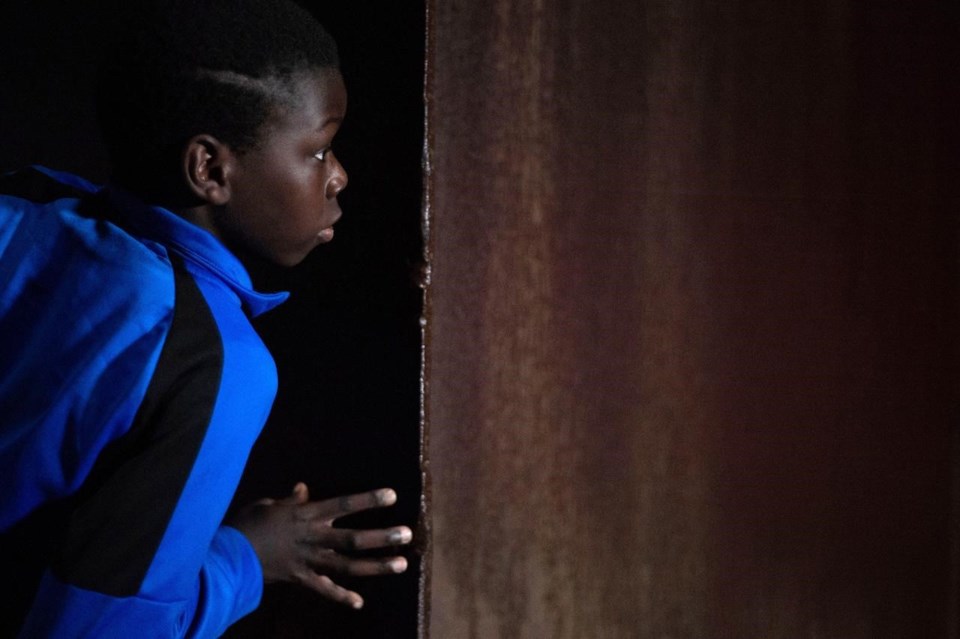It's one of the great ironies of cinema that many — not all, but many — of the most seemingly arthouse filmmakers make some of the most approachable films.
Jean-Pierre and Luc Dardenne are imposing names in cinema. The Belgian brothers have twice won the Palme d'Or. But you would be hard pressed to find many filmmakers who have beaten a more humanistic path, trailing working-class protagonists with handheld cameras and deep wells of empathy. They've stuck resolutely near home, shooting in and around their native Seraing, often with unprofessional actors. Yet they've found global acclaim for their humble, neorealistic masterworks.
It's been nearly a decade, though, since the Dardennes made a real impression. But in “Tori and Lokita,” a heart-wrenching immigrant drama that opens in theaters Friday, they make a thrilling return to form.
It's about 11-year-old Tori (Pablo Schils) and 16-year-old Lokita (Joely Mbundu), two African immigrants living in an unnamed Belgian city. Only Tori has the necessary papers to stay, and immigration authorities are pressing Lokita. We're plunged directly into her desperate situation, as she pleads to stone-faced bureaucrats that she and Tori and siblings. If proven — a DNA test is threatened — Lokita could stay. But their story isn't convincing.
So tender is the connection between Tori and Lokita that you wonder initially if they are, in fact, brother and sister. But their bond is something more profound than blood, a product of shared circumstance and mutual perseverance. How they have gotten to Europe from Benin and Cameroon is never specified but it's clear enough that they've been hardened by journeys that were solitary before they became intertwined. Lokita is still aggressively hounded for regular payments by the man who helped her flee. She sends home everything else to a family skeptical of how hard she's working.
Yet Lokita's doing everything she can, including delivering drugs for a backroom-dealing chef Betim (Alban Ukaj). He rarely misses a chance to take advantage of Lokita's situation. Tori is there alongside her through nearly it all, sticking up for her to Betim, requesting their pay and soothing Lokita when she's been abused. “You're sweet, Tori,” she says. “There's no one like you.”
The Dardennes' movie, a prize-winner at last year's Cannes Film Festival, resides overwhelmingly in their relationship, portrayed affectionately and unsentimentally by Mbundu and Schils. Tori and Lokita are welded together, a small but stubborn bulwark against a predatory world. When Lokita takes a job that separates them, the lengths to which Tori goes to reunite them is cleverly ingenious, deeply dangerous and one of the more moving things you're likely to see in a movie this year.
The Dardennes are at their best when their crushing contemporary worlds are navigated by young characters of gritty courage: the trailer-park teenager of “Rosetta,” the abandoned boy of “The Kid With a Bike.” “Tori and Lokita" also at point features another kid on a bike, making his way against the odds. It may be the abiding symbol of the directors' films: In this world, survival is self-propelled. Their taut and straightforward films can be heartbreaking — and “Tori and Lokita,” which grows increasingly, almost unbearable tense is no exception. But in the bleak, everyday struggles the Dardennes dramatize, they are always, thank god, keenly on the lookout for grace.
“Tori and Lokita,” a Sideshow and Janus Films release, is not rated by the Motion Picture Association of America but contains scenes of child peril and suggested sexual abuse. In French with subtitles. Running time: 88 minutes. Three and a half stars out of four.
___
Follow AP Film Writer Jake Coyle on Twitter at: http://twitter.com/jakecoyleAP
Jake Coyle, The Associated Press




